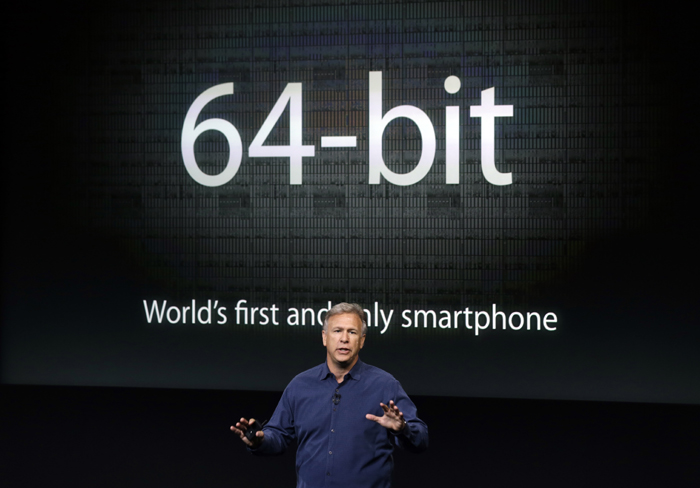Displaying items by tag: 64Bit
Imagination Beats A New 64-bit Drum
This morning Imagination announced their MIPS I-class 64-bit CPU family. These are the first IP cores to combine a 64-bit architecture and hardware virtualization with scalable performance through multi-threading, multi-core and multi-cluster coherent processing.
64-bit mobile SoC from MediaTek
After the 8-core processor codenamed MT6595, MediaTek company also announced the MT6732, its first 64-bit SoC. The chip has four ARM Cortex-A53 cores clocked at 1.5 GHz and the Mali T760 GPU with support for OpenGL 3.0 and OpenCL 1.2.
64 bit Bay Trail for mobile devices
Tablets based on Android with 64-bit Atom processors should arrive on the market in the next quarter, according to Intel's CEO Brian Krzanich at a meeting with analysts. Intel in November demonstrated the first prototype tablet with Android, which was powered by a 64-bit Atom. Of course, even though the 64-bit devices are at the door, it is worth noting that most of the applications at this time are not optimized for the new processors.
Everyone wants to have a 64-bit processor in their device
 |
It seems that Apple's launch of iPhone 5S device, the first smartphone with a 64-bit processor initiated a new trend on the market. Apple iPhone 5S as it is known brings its own 64-bit A7 processor with more than 1 billion transistors and a new 64-bit operating system, iOS 7.
64 bit Firefox still lives
 |
Last month Mozilla announced that they will cease the development of 64-bit Firefox for Windows (but not for Linux and Mac OS X). This move was, rightly, met with the disapproval of many users. However Mozilla refused to change their mind until now.
ARM Announces 64-Bit Specifications for ARM Processors
 We have been following the path of Windows 8 pretty closely including trying out the Developer’s preview on some existing tablet hardware (which lasted all of 4 days). So far we have a good feel for the OS and what is nice and what is not. We have talked at length about the mistake that we feel the MetroUI is both for the tablet market and the desktop. But it is the tablet market that we are most interested in. We know that there will be more x86 (64) based tablets in the future especially with the popularity (relatively) of the ones that are currently out (and that use a full Intel Core CPU and not an Atom). But how will ARM fare even a quad core ARM SoC when Windows 8 and all of its anticipated bloat hits it?
We have been following the path of Windows 8 pretty closely including trying out the Developer’s preview on some existing tablet hardware (which lasted all of 4 days). So far we have a good feel for the OS and what is nice and what is not. We have talked at length about the mistake that we feel the MetroUI is both for the tablet market and the desktop. But it is the tablet market that we are most interested in. We know that there will be more x86 (64) based tablets in the future especially with the popularity (relatively) of the ones that are currently out (and that use a full Intel Core CPU and not an Atom). But how will ARM fare even a quad core ARM SoC when Windows 8 and all of its anticipated bloat hits it?
This is that thing that has us wondering. Well we think we have an answer as ARM has just announced 64-bit capable processors. The ARMv8 is a going to be a new specification for ARM processors that is capable of executing both 32 and 64-bit instructions. This means an extended memory profile (not to mention performance) for applications that can handle the 64-bit memory block addressing. But more than that these smaller and lighter CPUs will be heading to the enterprise for some specific tasks (which means the rumors about a future ARM based version of Windows Server are true). Imagine being able to utilize these low power lost cost CPUs to run Domain Controllers, Web Server and other system that do not require the heavy lifting of a full x86-64 CPU. It will save companies quite a bit of money, and what is more… what starts in the enterprise ends up on the consumer’s plate. We have a sneaking suspicion that these new CPUs will end up in the consumer market faster than usual though as the press release about this mentioned Microsoft and nVidia directly. nVidia has made no secret that they want their Tegra SoCs to represent 50% of their revenue which means the consumer market for sure (with some enterprise products just for fun).
As of right now, the first devices will not be announced until 2012 with the first prototypes hitting in 2014. This means that while we have a good wait ahead of us it will give Microsoft time to fix what is buggy in Windows 8 just in time for the new 64-bit ARM CPUs to launch.
Discuss in our Forum

